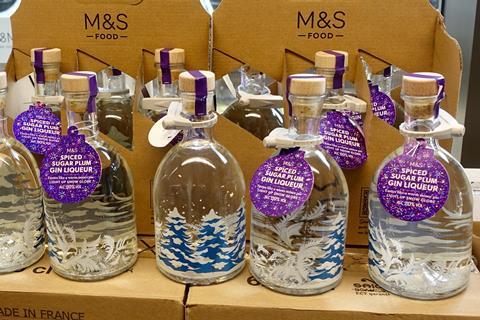Budget supermarket Aldi has lost its appeal against a ruling that it infringed Marks and Spencer's design of a festive gin-based liqueur bottle featuring gold flakes and LED lights.
In a decision concerning the grace period under Section 1B of the Registered Designs Act 1949, Lord Justice Arnold, with whom Lord Justice Lewison and Lord Justice Moylan agreed, said: 'The purpose of the grace period would be substantially defeated if disclosures by the designer during the grace period were relevant when considering infringement.
'Although they would not prejudice the validity of the registered design, they would reduce its scope of protection, potentially to nil. That cannot have been what the legislature intended.'

Dismissing the appeal, the judge said: 'The weight to be given to the shape of the bottles and the stopper was a matter for the judge as part of his overall assessment. The fact that the shape of the bottle was protected by a third party registered design is irrelevant apart from the fact that the design therefore formed part of the design corpus which the judge took into account.
'He also took the stoppers in the design corpus into account. He made no error of principle in comparing the overall impressions of the Aldi products with those of the registered designs, and his conclusion was one that he was fully entitled to reach.'
Richard May, IP partner at international firm Osborne Clarke, said the judgment was 'the right decision', a 'welcome' one for brand owners and 'favourable' for designers.
He added: 'It confirms the scope of the 12-month grace period is slightly wider than we thought. Designers do have freedom to test the market by disclosing different variations of a design in the grace period before deciding which variant to register – previously there was a question mark over whether disclosing different variants would narrow the scope of protection. Now we know that it won’t, which is great news, provided those variants are broadly the same design.
'It emphasises that registered designs are a very useful form of protection against lookalike products and rights holders can achieve success with the right case. Brand owners should create a thicket of registered rights around products by registering designs as well as trade marks in the fight against lookalikes.'
























4 Readers' comments